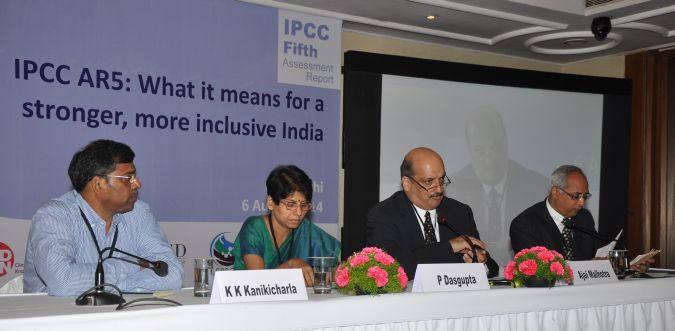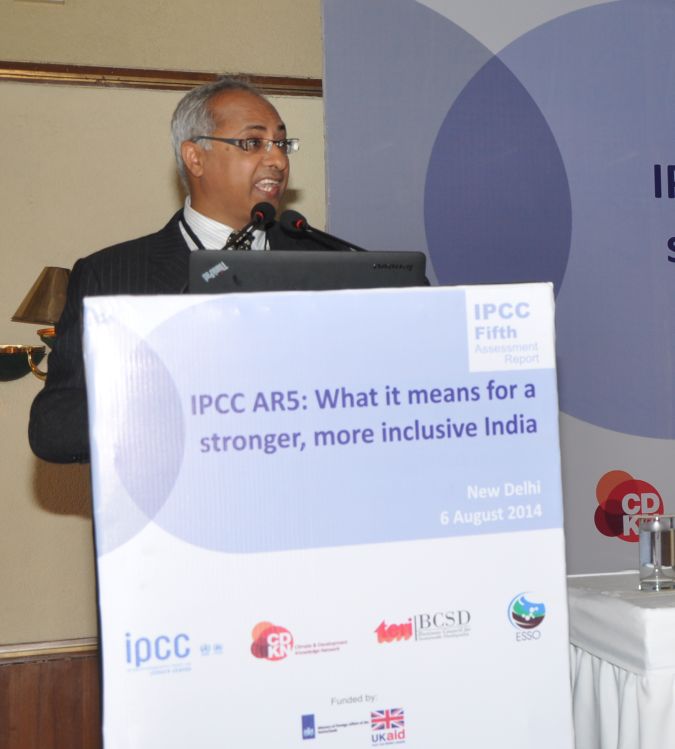The Conference titled “IPCC AR5: What it means for a stronger, more
inclusive India,” was focussed on the impact of climate change in
India, where Dr. Shobhakar presented the report of IPCC’s Working Group
III (Mitigation).
Billed as a lead event for dissemination of the IPCC Assessment
Report, the Conference wintessed participation from the IPPC Chairman,
Dr. Rajendra K Pachauri, and two Indian federal ministers -- Mr.
Prakash Javadekar, Minister of State for Environment, Forests and
Climate Change, and Mr. Jitendra Singh, Minister of State for Science
and Technology.
Dr. Shobhakar’s presentation was focused on delivering the overall
findings of the IPCC Working Group III and the key emission trends and
opportunities for low-carbon development, where he stated that India
has emerged as a key driver of emissions. “Emission trends in
India are growing in line with economic growth, but per capita
emissions are still low,” he remarked. He opined four opportunities for
low carbon development in India including development of low-carbon
economic strategies, de-carbonization of energy supply system,
introduction of low-carbon best practices and energy efficiency, and
greening of cities.
Dr. Shobhakar, who is a coordinating lead author of the section on
“Human Settlements, Infrastructure and Spatial Planning” in the IPCC
report, stated that about half of the cumulative anthropogenic carbon
dioxide emissions between 1750-2010 have occurred during the last 40
years. Stressing on the need for mitigation, Dr. Shobhakar allayed
fears that the cost of mitigation could result in a decrease in GDP
growth rate.
Dr. Rana Kapoor, President, Associated Chambers of Commerce and
Industry of India (ASSOCHAM); Mr. Sam Bickersteth, CEO, Climate and
Development Knowledge Network (CDKN); and Mr. Dipankar Sandyal,
Director, TERI Business Council for Sustainable Development were the
other dignitaries who participated in the event. Besides, Dr. Dhakal,
two other scientists, Dr. Krishna K Kanikicharla, and Dr. Purnamita
Dasgupta presented the IPCC findings. The three scientists also
addressed 150 young scientists at TERI.


